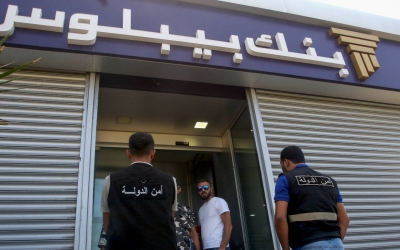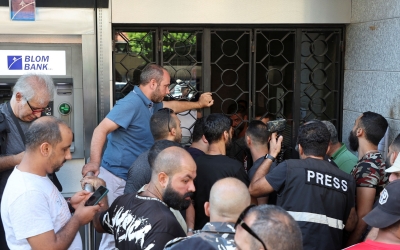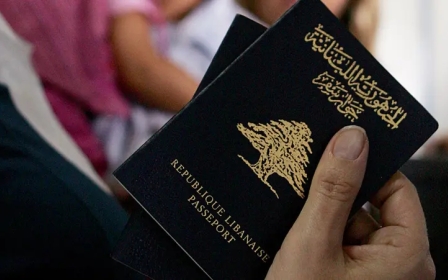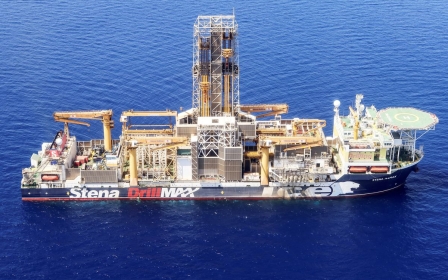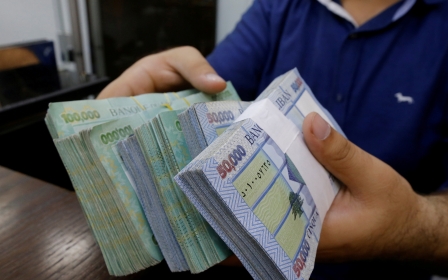Lebanon: MP's bank stunt draws criticism from desperate Lebanese
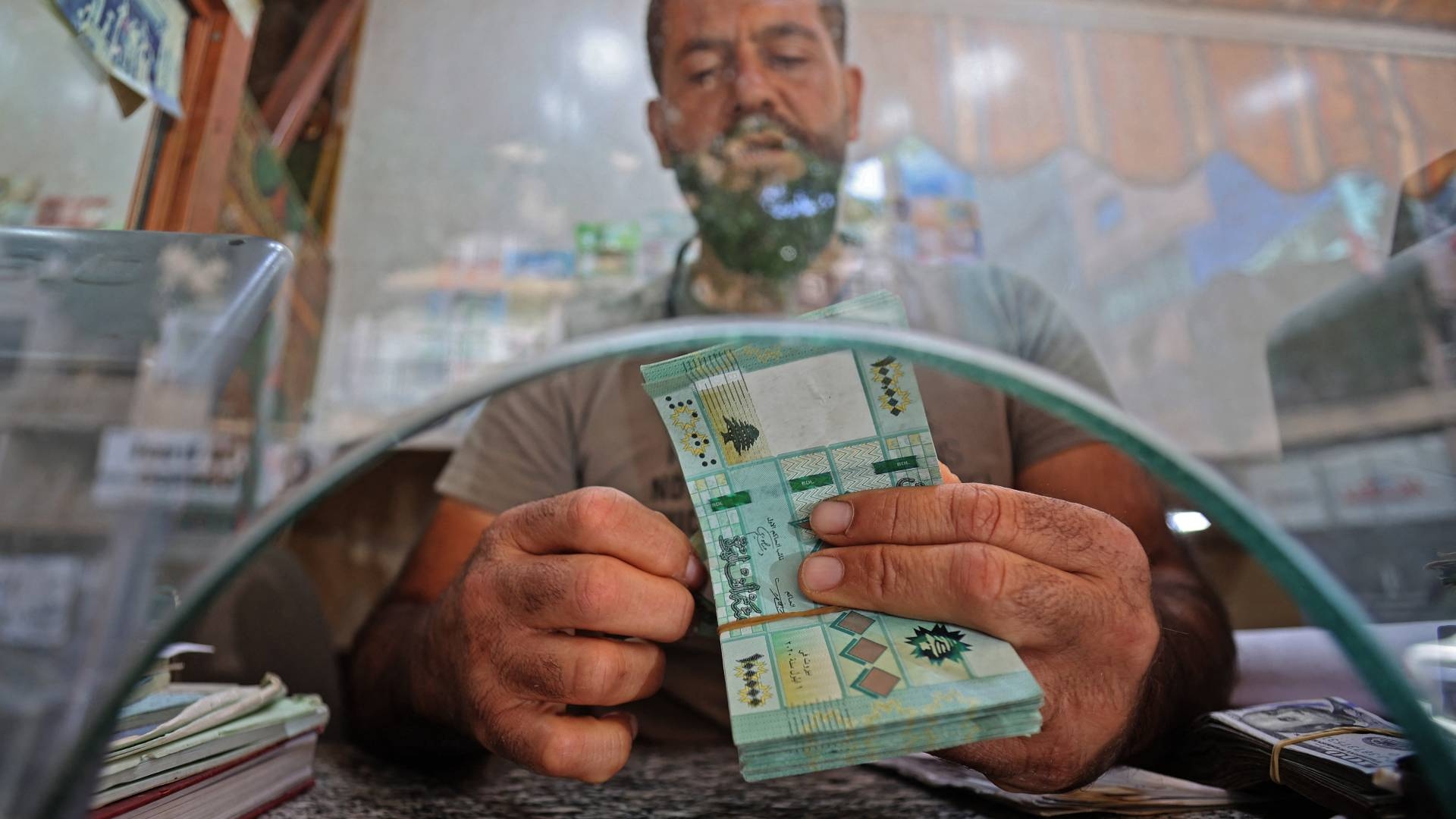
Depositors holding up or storming banks to demand their frozen funds has become a regular sight in Lebanon in recent months, as citizens struggle to pay bills amid the ongoing economic crisis.
This week, former and current officials joined the growing trend, protesting inside banks and asking for their cash to be released.
'Zarazir should have resigned from parliament, or at least quit the bloc that she is part of'
- Jamil Mouawad, political scientist
On Monday, a former Lebanese ambassador staged a sit-in in a bank to demand his assets, and on Wednesday, an MP also protested inside a bank and walked away with $8,500.
This has raised a few eyebrows, since most of those stormed banks to retrieve their deposits - some of them armed - had blamed politicians, officials and senior bankers for bringing the country to this point in the first place.
New MEE newsletter: Jerusalem Dispatch
Sign up to get the latest insights and analysis on Israel-Palestine, alongside Turkey Unpacked and other MEE newsletters
Many in Lebanon accuse traditional political parties of corruption and incompetence, which is why some are now taking matters into their hands.
There have been at least seven incidents of clients holding up banks this week, with the latest reported on Thursday morning, where an armed man desperate to access some of his $150,000 frozen funds in Bankmed took hostages and threatened to kill himself on the site.
'A regular citizen'
On Wednesday, Cynthia Zarazir, a newly elected MP of the Forces of Change bloc, came with two lawyers to the Antelias branch of Byblos Bank in Beirut, asking for her frozen savings to pay for surgery.
"We've spent a few days going back and forth to the bank and bringing my medical reports and they don't answer us. I can't delay this any more. I came to take my money," Zarazir told reporters who gathered outside the bank.
She said she came "as a regular citizen, not as an MP," and after a four-hour sit-in, she received the $8,500 she needed, her lawyers said.
Jamil Mouawad, a political scientist, told Middle East Eye, "for the first time, we have an MP acting as if she is an ordinary citizen. We got used to a different kind of MPs' behaviour; the act itself is very new to us."
Mouawad said that, for Lebanese, "what looked like weird behaviour reminded us that an MP can also be an ordinary citizen, suffering the same as ordinary citizens in this crisis."
But the question of what MPs' role is and what action they should take to tackle the economic crisis remains unanswered.
"Zarazir should have resigned from parliament, or at least quit the bloc that she is part of, which includes MPs who are fierce supporters of the banks and their wrongdoings," Mouawad said.
Zarazir is entitled as an MP to health insurance, and her lawyer argued that she needed money to pay for the excess amount that is not covered by the insurance.
"I cannot question her motive," Mouawad said. "But I tried hard to search for any mention of healthcare in her electoral programme and if she had a proposal for health coverage for her voters, and I couldn't find any."
MEE contacted Zarazir but did not receive a response at the time of publication.
Locked money
The Wednesday sit-in came a day after another official did something similar.
George Siam, a former ambassador for Lebanon and the honorary consul general of Ireland in Lebanon, staged a protest inside IBL Bank in the Beirut neighbourhood of Hazmieh asking for his cash.
'When I go to the supermarket, I go as a normal customer, and when I got to the bank, I went as a normal depositor'
- George Siam, ex-ambassador
Siam told MEE that he went in there "like any other depositor who does not have access to his locked money" and that any title or post he held was irrelevant.
"When I go to the supermarket, I go as a normal customer, and when I got to the bank, I went as a normal depositor," he said.
Siam stressed that, unlike others who threatened to use violence, he staged his protest peacefully.
He refused to disclose the details of the agreement he reached with the bank that ended his sit-in.
The stormings were renewed this week after banks closed their doors for three days last month over security concerns, following a wave of bank hold-ups.
Banks said they feared for their employees' safety before they partially reopened last week under strict security.
On Thursday, Sali Hafiz, a Lebanese depositor who held up a bank in mid-September with a toy gun, was released from custody on bail.
Hafiz had handed herself over to the police on Wednesday after being on the run since the incident.
In 2019, commercial banks in Lebanon began freezing depositors out of their savings and restricted access to their accounts as part of informal capital controls.
The country has been in a financial meltdown since then, which has left an estimated 80 percent of the population living below the poverty line and which the World Bank said is one of the three worst economic crises of modern times.
Middle East Eye delivers independent and unrivalled coverage and analysis of the Middle East, North Africa and beyond. To learn more about republishing this content and the associated fees, please fill out this form. More about MEE can be found here.


